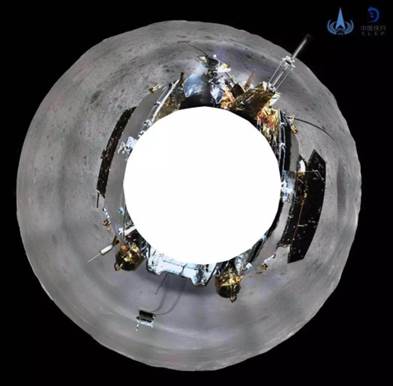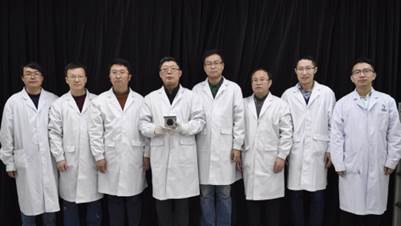
Recently, Chang'e-4 probe lands in the Von Carmen crater, the Antarctic-Aitken Basin on the moonback. Chang'e-4 is the first human detector soft landing on the moon.
As a main load of the payload subsystem in Chang'e-4, the topographic camera developed by Institute of Optics and Electronics (IOE) successfully obtains the high resolution images of the landing terrain, accomplishes the engineering task of monitoring the moonback patrol movement of YuTu II.
After landing on the moonback, the topographic camera takes the first color image of YuTu II on the moon, obtains a 360° ring-shot color high-definition panoramic mosaic image of Aitken Basin. The completion of mutual shooting task between two devices announces that Chang'e-4 mission acquires a complete success.

Figure 1. The ring-shot panorama obtained by the topographic camera. (Image by IOE)
The research group from Institute of Optics and Electronics has scientifically calibrated the camera image color, geometry, irradiation and other parameters to ensure the fidelity of camera image data.
They designed a fast intelligent exposure algorithm for moon-back scenes and moon-backlit environments with limited on-orbit computing resource, improving the adaptability of lunar surface illumination imaging.
And they used multiple ways to dissipate heat and effectively ensure the success of lunar scientific imaging.
The images obtained by the topographic camera reappears the geomorphological scene of the lunar back, helped scientists study the scientific issues such as the origin of the moon.

Figure 2. The topographic camera research group. (Image by IOE)
In the following work, IOE will pay more effort on the research of space science camera and help human beings explore the vast universe.

86-10-68597521 (day)
86-10-68597289 (night)

52 Sanlihe Rd., Xicheng District,
Beijing, China (100864)

